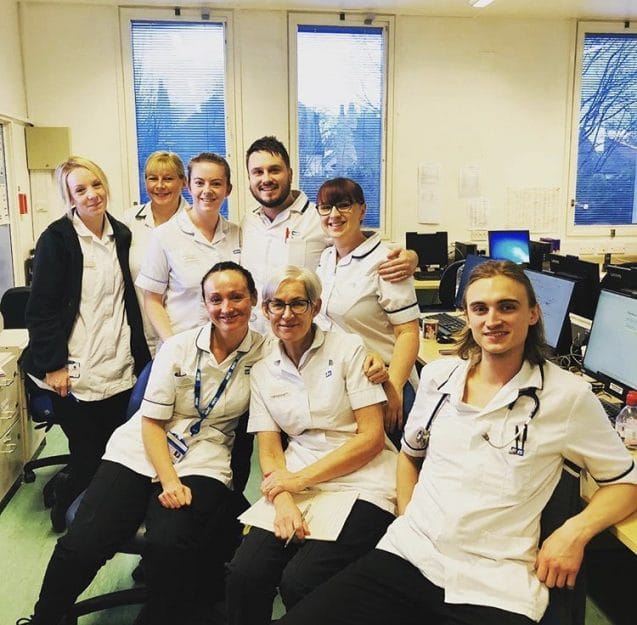Allied Health Professionals
Allied Health Professionals at the Society for Acute Medicine are represented by Lynsey Alexander.
Although AHPs may represent a small proportion of members at the Society for Acute Medicine, they are integral to the multi-disciplinary team on the acute medical units (AMU). They are vital in the decision making process for patients on an acute medicine pathway, and ensure the provision of a holistic and high quality care.
By seeing acute medicine as a distinct speciality, it allows AHPs to define a clear role for themselves within AMUs. It also allows to recognise the complex clinical reasoning skills and fast decision making required that is often not utilised to the same extent within other clinical fields. By having a higher perception of the role of AHPs in acute medicine, it will facilitate greater involvement of AHPs in strategies to develop the field and establish their role within forums such as SAM.
The role of the Allied Health Professional in Acute Medicine:
AHPs are involved in many clinical areas of the hospital, building links for the sharing of skills and procedures. This positively impacts on patients flow and reduces the need to move patients through the system, providing a continuity of care at all stages and levels.[1]Patients are referred to AHPs on a need based and dependent on the outcome of their individual assessment.
AHP’s have a key role in acute medicine directly influencing the quality of care a patient receives and the decisions made around all aspects of an individual’s admission, treatment and discharge from an acute medical setting. The skills required vary amongst the range of professions that are represented within the team but these require some core themes:
- Highly developed clinical reasoning
- Rapid but effective decision making
- Patient focused goal setting

Allied Health professions working in Acute Medicine:
Dieticians: intervene most commonly when patients suffers from nutritional or feeding problems.
Occupational Therapists: intervene most commonly with patients who may benefit from intervention to promote and support their independence, such as falls or difficulties managing their activities of daily living. This most commonly affects older people.
Physiotherapists: may be involved with patients suffering from conditions which have an impact on their physical function. This may vary from respiratory complaints, to acute back pain or falls and fractures.
Radiographers: provide radiography diagnostics to enable patients to get timely and accurate diagnoses of conditions.
Speech and language therapists: intervenes most commonly with speech or swallow problems. These may be from an acute injury such as stroke or degenerative conditions such as dementia or multiple sclerosis.
Aims:

Grow SAM’s membership among Allied Health Professionals

Improve participation within the Society for Acute Medicine

Increase the relevancy of content at conferences to meet the CPD desires of AHPs.
Current work in progress:
Assessing what AHPs would want from conferences and develop networks around the country.
Membership
Stay on top of the most cutting-edge acute medical research, discuss challenges and triumphs with colleagues, and influence the future of this exciting young speciality.
Available resources:
Physiotherapy and occupational Therapy in the Acute Medical Unit Guidance for Practice, 2015
Occupational Therapy: Best Practice Guidelines for Acute Medical Services by Fraser S Sen. OT Liberton Hospital, Edinburgh; Mearns N. Sen. OT Royal Infirmary of Edinburgh; Millar A. Sen. OT Western General Hospital Edinburgh; Murray F. Sen. OT Borders General Hospital; Wardlaw F. Sen. OT Royal Infirmary of Edinburgh (also available from Document Library)
[1] AHP and HCS Advisory Group June 2012 The Role of Healthcare Professionals within critical care services NHS Modernisation Agency.
